Para leer la traducción al español de este blog, desplácese hasta la mitad de la página.
For families in southwest Little Rock, finding affordable, high-quality child care close to home is a challenge. For Spanish-speaking families, the options are even more limited.
Leticia Rodriguez, director of Lovely Sunshine Learning Center, has been with the dual-language child care center for 11 years. Located off Baseline Road in southwest Little Rock, Lovely Sunshine provides early childhood education in both English and Spanish. Rodriguez notes that dual-language instruction benefits not only bilingual families but also English-speaking families, as their children gain exposure to a new language.
For this reason, she is focused on maintaining the highest quality of care at Lovely Sunshine for all families.
Rodriguez is one of 12 Little Rock-based child care providers who participated in a cohort aimed at raising their Better Beginnings rating. Led by the City of Little Rock through a $15,000 grant from the National League of Cities, the program targeted Level 2 Better Beginnings centers because achieving three stars or higher results in significantly increased reimbursement rates for child care centers accepting School Readiness Assistance.
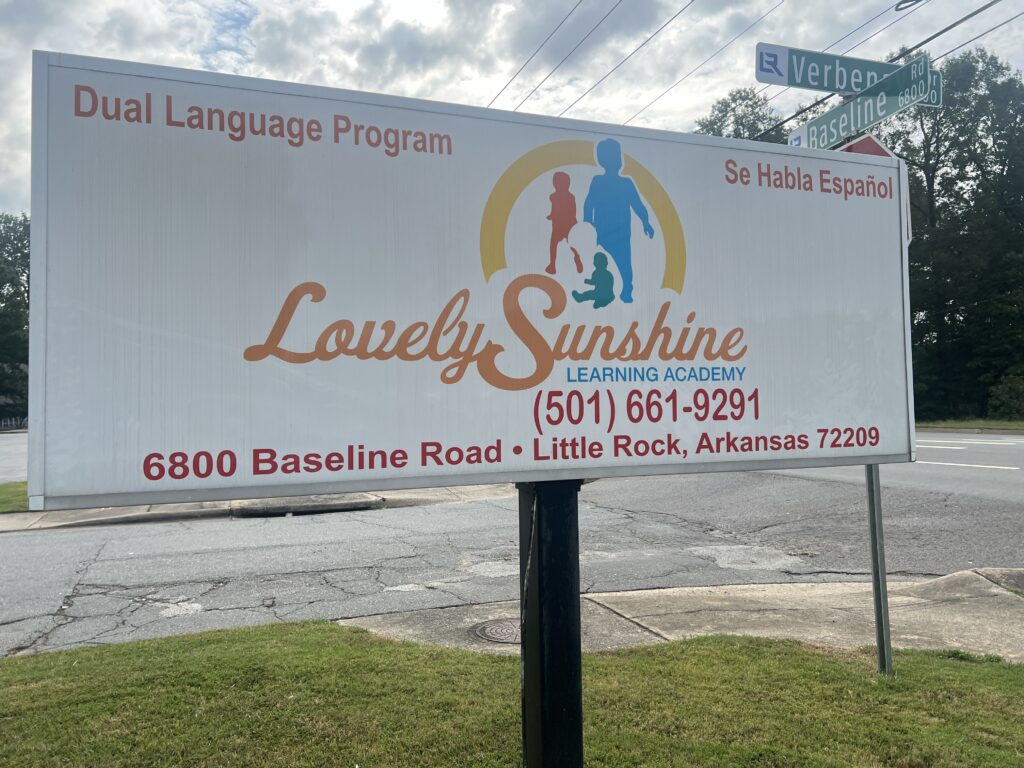
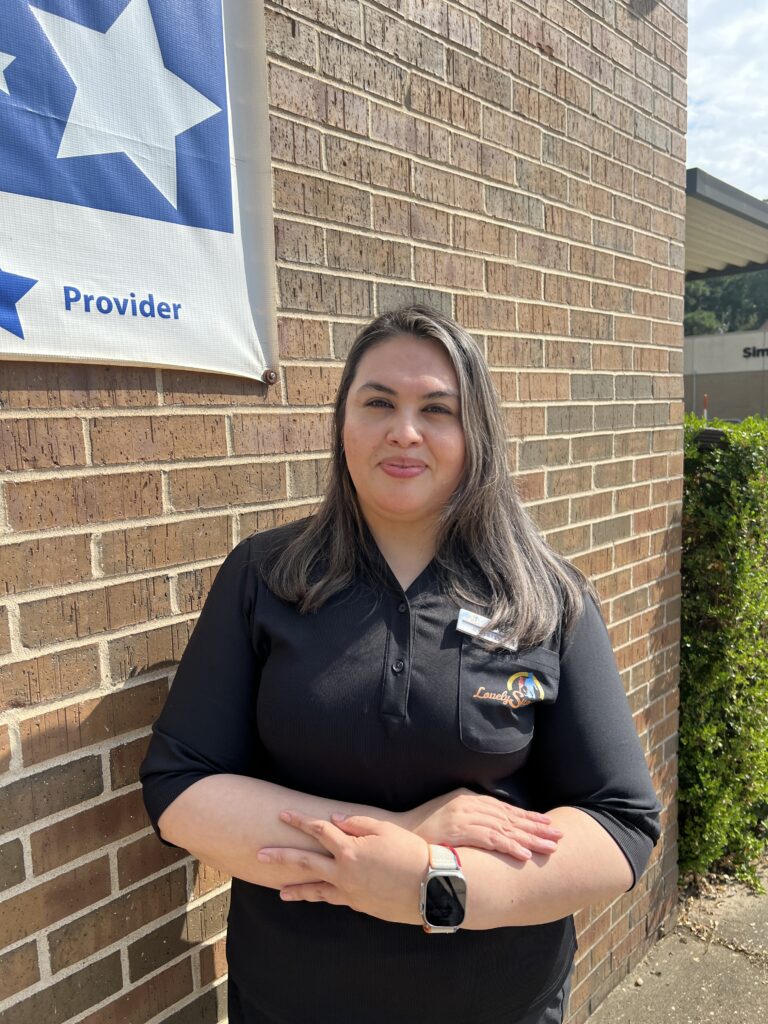
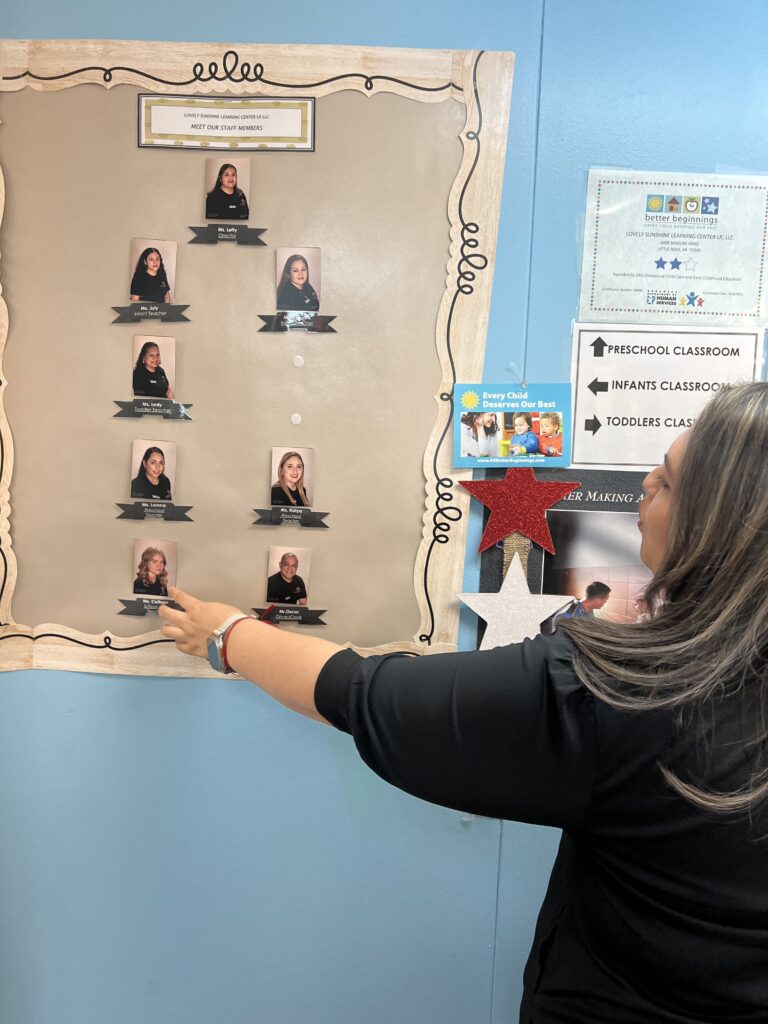
Mapping Needs and Building Capacity for Child Care Providers
The need for the cohort became clear after city officials identified gaps in early childhood education data. Jennifer Glasgow, the City of Little Rock’s chief education officer, recognized that tracking child care availability was crucial for understanding local needs and developing an approach to support providers in underserved areas.
“We had no idea how many kids in Little Rock were enrolled in child care centers or family homes – let alone how many additional slots we needed,” said Glasgow. “Unlike public school enrollment, that data is not tracked.”
This realization sparked an initiative to strengthen Little Rock’s child care infrastructure. The NLC grant required collaboration with a community organization on implementation. Partnering with Excel by Eight was a natural fit since the City is the lead organization for Excel by Eight’s Little Rock steering committee as well as a local early childhood lead organization through the Arkansas Department of Education Office of Early Childhood.
Tori Scott, a communities manager for Excel by Eight, was tasked with mapping out child care availability in Little Rock. Her research, drawing on birth rate data from the Arkansas Department of Health and child care licensing data, identified four Little Rock ZIP codes with high numbers of infants and toddlers but limited quality child care slots for these age groups.
An estimated 8,350 infants and toddlers live in Little Rock with more than half concentrated in 72204, 72209, 72211, and 72223. In those ZIP codes, about 300 slots were in child care centers with a Level 3 or higher Better Beginnings rating. This met only 6% of the demand for infants and toddlers, highlighting the need for targeted intervention.
The 12 centers that participated in the NLC cohort represent 717 child care slots and were primarily located in ZIP codes with the lowest number of high-quality slots in Little Rock: 72209 – which is the ZIP code for Lovely Sunshine – and 72204. The grant enabled the City of Little Rock to provide a stipend to the directors for their participation.
“We hosted focus groups with providers to identify their challenges to providing quality care, and participants overwhelmingly said that the voucher reimbursement rate was low,” Glasgow said. “Increasing their quality level would address this, but they needed support with business administration to get there.
“Early childhood entrepreneurs and center directors are experts in taking care of children; they are not necessarily experts in drafting policies and are challenged to find the time.”
The cohort helped early childhood providers like Rodriguez strengthen the administrative tasks that influence their Better Beginnings ratings. To address these needs, the City of Little Rock determined that a three-day, in-person cohort with an intensive focus on business practices would help providers improve their quality rating and, ultimately, their revenue, as many centers serve a high number of families who receive School Readiness Assistance.
The daily School Readiness Assistance reimbursement rate for an infant receiving care at a Level 3 center is $17 more than at a Level 2 center, which makes a substantial difference to a center’s bottom line. “This financial boost enables centers to invest further in their staff, facilities, and programs, creating a ripple effect that benefits the entire community,” Glasgow said.
As of November, three facilities have achieved a Level 3 Better Beginnings rating. These facilities will likely see an annual revenue increase of over $50,000.
Elevating Quality and Leadership at Lovely Sunshine
While the increased reimbursement rate for Level 3 centers was an incentive, Rodriguez’ primary goal for improving Lovely Sunshine’s Better Beginnings rating was to ensure Spanish-speaking families in southwest Little Rock had access to quality care in their neighborhood. Currently, only one other Level 3 center operates in the area, and it provides care exclusively in English.
“We are the first bilingual center in the area, so becoming the first bilingual center that’s a Level 3 was my main reason for wanting to move up,” she said.
The program unfolded over three immersive workshops, providing Rodriguez and other participants with hands-on support tailored to their needs. Donna Kirkwood, Better Beginnings coordinator at Arkansas State University Childhood Services, facilitated the workshops using the Program Administration Scale (PAS) to guide providers in improving leadership and management practices.
PAS is a tool designed to enhance the quality of child care programs by equipping providers with strategies to strengthen their administrative processes. The program also offered direct support in reviewing and organizing documentation for the PAS portfolio.
Rodriguez gestured to a box of neatly arranged files in her office. “This is my whole portfolio,” she said. “Ms. Donna analyzed my paperwork and gave me helpful feedback on how to improve.
“To get from Level 2 to Level 3, it’s less about the quality of care but more about the administrative stuff.”
The PAS program’s impact extended well beyond paperwork. Rodriguez said it strengthened her leadership skills, helping her run more effective, collaborative meetings and streamline the onboarding process for new employees. She learned to prioritize team input and shared decision-making, which she believes fosters a stronger, more engaged team.
“You have to allow team members to participate in decision-making, whether it’s during a staff meeting or by getting their feedback about ways to improve our operations,” she explained. “You have to see what they think about the center and what suggestions they have for improvement. It becomes more about group decision-making, which leads to better staff retention because they feel more like part of a team.”
Rodriguez also developed a more intentional onboarding process, emphasizing hands-on training, mentorship, goal-setting, and regular evaluations. One person on staff, who had no previous experience in child care, has been with Lovely Sunshine for four years. While this employee’s longevity predates the training, Rodriguez said the PAS program has helped her refine her approach to retaining new employees.
“This team member and I have been through a lot – COVID, increased enrollment, enrollment going down – but she has stayed,” Rodriguez said. “The PAS workshop helped me determine what goals I could co-create with new employees to help them stick around.”
Ultimately, the program succeeded in helping centers like Lovely Sunshine “level up”; the center has achieved a Level 3 Better Beginnings rating.
“This program was really helpful, and I am grateful that the City of Little Rock provided an incentive for participating,” Rodriguez said.
The City of Little Rock is receiving statewide recognition for its innovative approach to supporting early childhood entrepreneurs and center directors. Arkansas Business featured the program in its December 16 issue, and on January 16, the Arkansas Municipal League will recognize the City with its Trendsetter Award in Education and Workforce during its winter meeting.
The success of the National League of Cities cohort demonstrates how targeted support and collaboration can transform child care centers, not only improving their administrative practices but also enhancing the quality of care they provide to families. For Rodriguez and Lovely Sunshine, achieving a Level 3 Better Beginnings rating represents more than a milestone; it’s a step toward ensuring that more children, regardless of their ZIP code or language, have access to the quality early education they deserve.
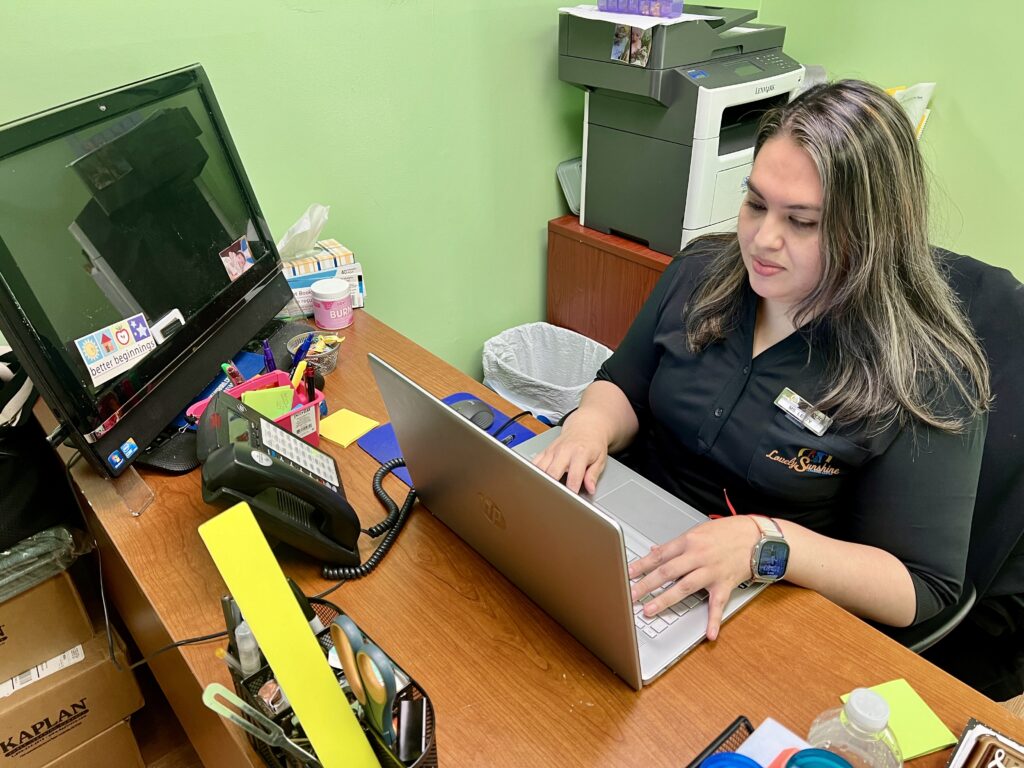
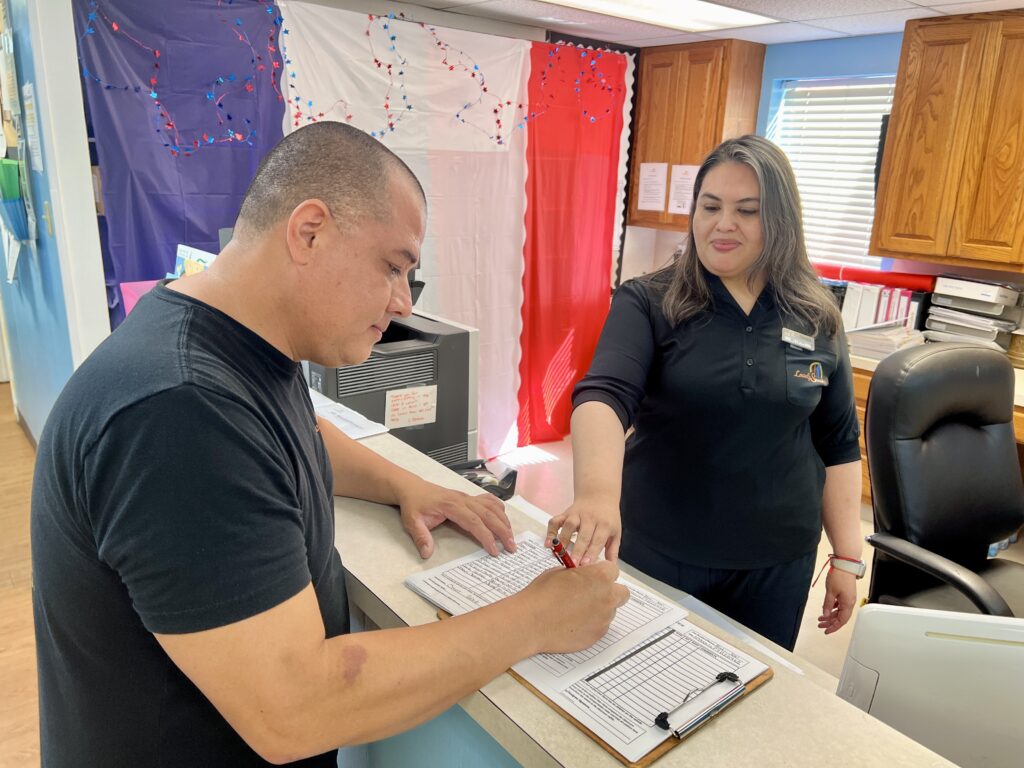
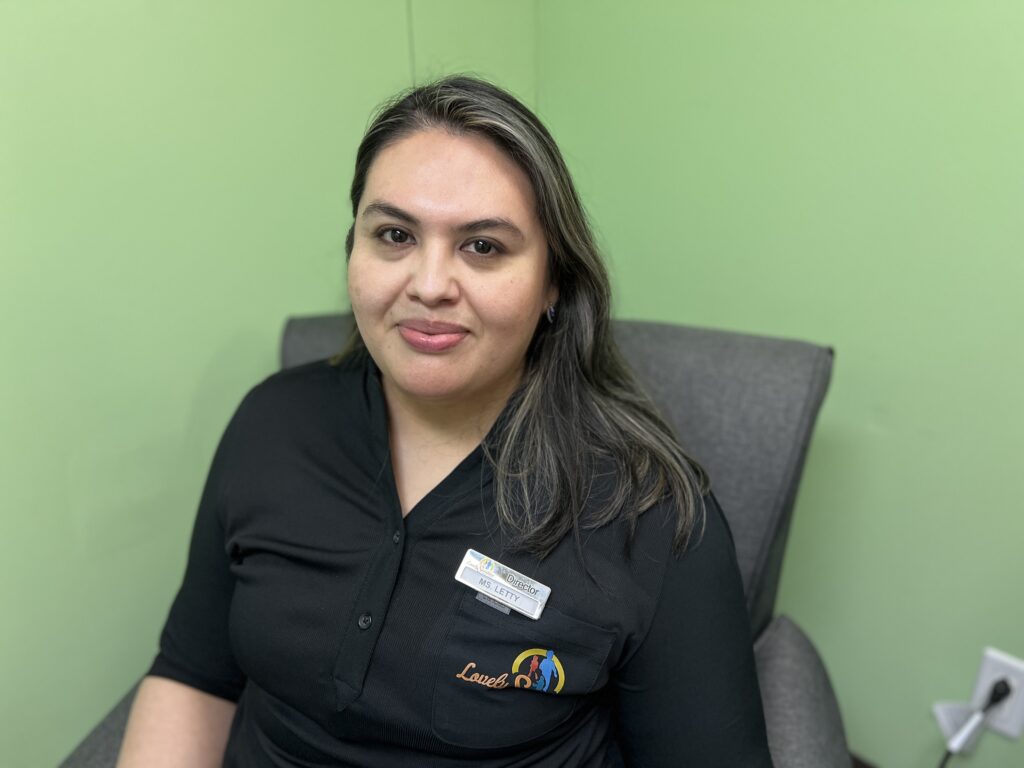
Subiendo el Nivel del Cuidado Infantil en Little Rock
Para las familias en el suroeste de Little Rock, encontrar cuidado infantil accesible y de alta calidad cerca de casa es un desafío. Para las familias de habla hispana, las opciones son aún más limitadas.
Leticia Rodríguez, directora de Lovely Sunshine Learning Center, ha trabajado en este centro de cuidado infantil bilingüe durante 11 años. Ubicado en Baseline Road, en el suroeste de Little Rock, Lovely Sunshine ofrece educación infantil temprana en inglés y español. Rodríguez señala que la enseñanza bilingüe beneficia no solo a las familias bilingües, sino también a las familias de habla inglesa, ya que sus hijos tienen la oportunidad de aprender un nuevo idioma.
Por esta razón, se enfoca en mantener la más alta calidad de atención en Lovely Sunshine para todas las familias.
Rodríguez es una de los 12 proveedores de cuidado infantil en Little Rock que participaron en un grupo diseñado para mejorar su calificación de Better Beginnings. Liderado por la Ciudad de Little Rock a través de una subvención de $15,000 otorgada por la Liga Nacional de Ciudades, el programa se enfocó en centros de nivel 2 de Better Beginnings, ya que alcanzar tres estrellas o más resulta en un aumento significativo en las tasas de reembolso para los centros de cuidado infantil que aceptan asistencia para preparación escolar.

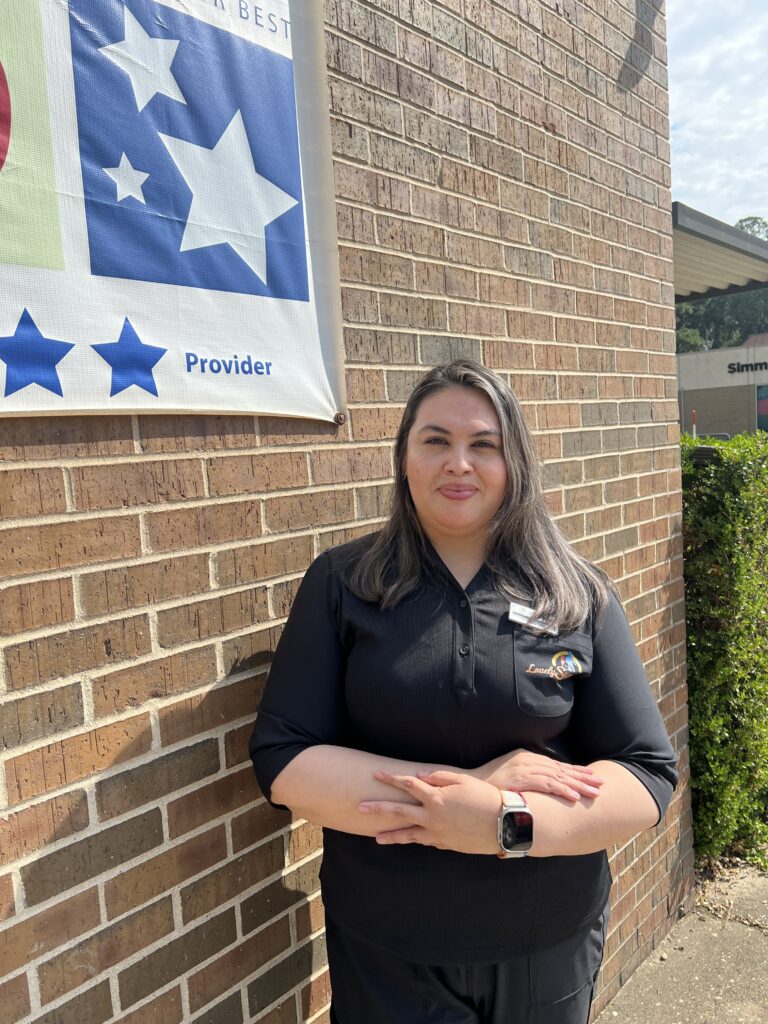

Identificando Necesidades y Construyendo Capacidades para Proveedores de Cuidado Infantil
La necesidad de este programa se hizo evidente después de que los funcionarios de la ciudad identificaran brechas en los datos sobre educación infantil temprana. Jennifer Glasgow, directora de educación de la Ciudad de Little Rock, reconoció que era crucial rastrear la disponibilidad de cuidado infantil para entender las necesidades locales y desarrollar un enfoque para apoyar a los proveedores en áreas desatendidas.
“Fue sorprendente para las personas enterarse de que yo trabajo en la oficina del alcalde y no tenía idea de cuántos niños en Little Rock estaban inscritos en centros de cuidado infantil o en hogares familiares, y mucho menos cuántos cupos adicionales necesitábamos,” dijo Glasgow. “A diferencia de la inscripción en las escuelas públicas, esos datos no se rastrean.”
Esta realidad impulsó una iniciativa para fortalecer la infraestructura de cuidado infantil en Little Rock. Un requisito de la subvención de la NLC era colaborar con una organización comunitaria para la implementación. Como organización líder del comité directivo de Excel by Eight en Little Rock, la Ciudad de Little Rock estaba bien posicionada para asociarse con Excel by Eight.
Tori Scott, gerente comunitaria de Excel by Eight, fue encargada de mapear la disponibilidad de cuidado infantil en Little Rock. Su investigación, basada en datos de tasas de natalidad del Departamento de Salud de Arkansas y datos de licencias de cuidado infantil, identificó cuatro códigos postales de Little Rock con una alta concentración de bebés y niños pequeños, pero con una limitada oferta de cupos de cuidado infantil de calidad para estos grupos de edad: 72204, 72209, 72211 y 72223.
Se estima que 8,350 bebés y niños pequeños viven en Little Rock, y más de la mitad están concentrados en estos cuatro códigos postales. En esos códigos postales, alrededor de 300 cupos estaban en centros de cuidado infantil con una calificación de Nivel 3 o superior de Better Beginnings. Esto cumplía con solo el 6% de la demanda de cuidado infantil para bebés y niños pequeños, lo que destacó la necesidad de una intervención dirigida.
Los 12 centros que participaron en el programa de la NLC representaban 717 cupos de cuidado infantil y estaban ubicados principalmente en los códigos postales con la menor cantidad de cupos de calidad en Little Rock: 72209, que es el código postal de Lovely Sunshine, y 72204. La subvención permitió a la Ciudad de Little Rock ofrecer un estipendio a los directores por su participación.
Realizamos grupos focales con proveedores para identificar los desafíos que enfrentan para ofrecer cuidado de calidad, y los participantes dijeron abrumadoramente que la tasa de reembolso de la Asistencia para la Preparación Escolar era baja,” dijo Glasgow. “Necesitaban apoyo con la administración de sus negocios.
“Son expertos en el cuidado de niños; no necesariamente son expertos en redactar políticas o gestionar un negocio.”
El programa ayudó a proveedores de cuidado infantil como Rodríguez a fortalecer las tareas administrativas que influyen en las calificaciones de Better Beginnings. Para abordar estas necesidades, la Ciudad de Little Rock decidió implementar un programa intensivo de tres días enfocado en prácticas empresariales para ayudar a los proveedores a mejorar sus calificaciones de calidad y, en última instancia, sus ingresos, ya que muchos centros atienden a un gran número de familias que reciben Asistencia para la Preparación Escolar.
La tasa de reembolso diario por Asistencia para la Preparación Escolar para un bebé que recibe cuidado en un centro de nivel 3 es $17 más alta que en un centro de nivel 2, lo que representa una diferencia significativa para las finanzas de un centro. “Este impulso financiero permite a los centros invertir más en su personal, instalaciones y programas, creando un efecto dominó que beneficia a toda la comunidad,” dijo Glasgow.
Elevando la Calidad y el Liderazgo en Lovely Sunshine
Aunque la mayor tasa de reembolso para los centros de nivel 3 fue un incentivo, el objetivo principal de Rodríguez al mejorar la calificación de Better Beginnings de Lovely Sunshine era asegurar que las familias de habla hispana en el suroeste de Little Rock tuvieran acceso a cuidado de calidad en su vecindario. Actualmente, solo otro centro de nivel 3 opera en el área, y brinda servicios exclusivamente en inglés.
“Somos el primer centro bilingüe en el área, así que convertirme en el primer centro bilingüe que alcanza el nivel 3 fue mi razón principal para querer avanzar”, dijo.
El programa incluyó tres talleres inmersivos, brindando a Rodríguez y otros participantes apoyo personalizado según sus necesidades. Donna Kirkwood, coordinadora de Better Beginnings en los Servicios para la Infancia de la Universidad Estatal de Arkansas, facilitó los talleres utilizando la Escala de Administración del Programa (PAS, por sus siglas en inglés) para guiar a los proveedores en la mejora de sus prácticas de liderazgo y gestión.
PAS es una herramienta diseñada para mejorar la calidad de los programas de cuidado infantil al proporcionar estrategias para fortalecer los procesos administrativos. El programa también ofreció apoyo directo en la revisión y organización de la documentación del portafolio PAS.
Rodríguez señaló una caja de archivos ordenados en la esquina de su oficina. “Este es todo mi portafolio,” dijo. “La Sra. Donna analizó mi documentación y me dio comentarios útiles sobre cómo mejorar.
“Pasar de Nivel 2 a Nivel 3 se trata de mejorar la calidad del cuidado infantil y sobre todo tambien lo de la parte administrativa.”
El impacto del programa PAS se extendió mucho más allá del papeleo. Rodríguez dijo que fortaleció sus habilidades de liderazgo, lo que la ayudó a organizar reuniones más efectivas y colaborativas y a agilizar el proceso de incorporación de nuevos empleados. Aprendió a priorizar los aportes del equipo y la toma de decisiones compartida, lo que cree que fomenta un equipo más fuerte y comprometido.
“Hay que permitir que los miembros del equipo participen en la toma de decisiones, ya sea durante una reunión de personal o recibiendo sus sugerencias o comentarios sobre las formas de mejorar nuestras operaciones”, explicó. “Hay que ver qué piensan del centro y qué sugerencias tienen para mejorar. Se trata más de la toma de decisiones en grupo, lo que conduce a una mejor retención del personal porque se sienten más parte de un equipo”.
Rodríguez también desarrolló un proceso de incorporación más intencional, enfatizando la capacitación práctica, la tutoría, el establecimiento de objetivos y las evaluaciones periódicas. Una persona del personal, que no tenía experiencia previa en el cuidado de niños, ha estado con Lovely Sunshine durante cuatro años. Si bien la longevidad de esta empleada es anterior a la capacitación, Rodríguez dijo que el programa PAS la ha ayudado a refinar su enfoque para retener a los nuevos empleados
“Este miembro del equipo y yo hemos pasado por muchas cosas: COVID, aumento de la inscripción, disminución de la matrícula, pero ella se ha quedado”, dijo Rodríguez. “El taller de PAS me ayudó a determinar qué objetivos podía co-crear con los nuevos empleados para ayudarlos a quedarse”.
En última instancia, el programa logró ayudar a centros como Lovely Sunshine a “subir de nivel”; el centro ha alcanzado una calificación de Nivel 3 Better Beginnings.
“Este programa fue realmente útil, y estoy agradecido de que la Ciudad de Little Rock haya proporcionado un incentivo para participar”, dijo Rodríguez.
El éxito de la cohorte de la Liga Nacional de Ciudades demuestra cómo el apoyo y la colaboración específicos pueden transformar los centros de cuidado infantil, no solo mejorando sus prácticas administrativas, sino también mejorando la calidad del cuidado que brindan a las familias. Para Rodríguez y Lovely Sunshine, lograr una calificación de Nivel 3 de Better Beginnings representa más que una meta; es un paso para garantizar que más niños, independientemente de su código postal o idioma, tengan acceso a la educación temprana de calidad que merecen.



